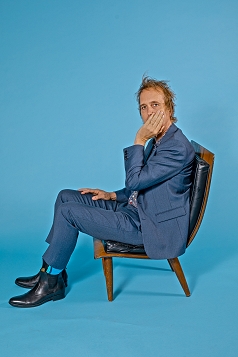Temple Beautiful
CHUCK PROPHET RELEASES TEMPLE BEAUTIFUL ON YEP ROC RECORDS FEBRUARY 7, 2012
TWELFTH STUDIO ALBUM PAYS HOMAGE TO SAN FRANCISCO
CAST OF CHARACTERS INCLUDES WILLIE MAYS, THE MITCHELL BROTHERS, JIM JONES, RED MAN, DAN WHITE, CASTRO DISTRICT, EMPEROR NORTON AND MORE
NATIONAL TOUR TO BE ANNOUNCED
“…a sparky songwriter worthy of greater attention.” Q Magazine
“Prophet delivers with quixotic swagger and declamatory sneer.” MOJO
With “his triple-threat ability—excellent songwriter, killer lead guitarist, charismatic frontman”—(AOL Spinner), California native and longtime San Francisco resident singer-songwriter Chuck Prophet pays homage to the city he calls home for his twelfth studio album, Temple Beautiful. Set for February 7, 2012 release on Yep Roc Records, the album is named for the ill-fated club of the same name, “Temple Beautiful is a long closed punk rock club located in the old Reverend Jim Jones’ People’s Temple. Where I saw my first gigs,” says Prophet, who co-produced the album with Brad Jones. “This record was made in San Francisco, by San Franciscans about San Francisco.”
Co-written with klipschutz (AKA klip) at Prophet’s “non-internet-having office space,” the 12-track album’s odes include “Castro Halloween,” “a gleaming, breezy rocker, anchored by Prophet’s everyman voice” (SF Weekly), “Willie Mays Is Up At Bat,” “Emperor Norton in the Last Year of His Life (1880),” and the title track which boasts Roy Loney, vocalist of legendary Bay Area band The Flamin’ Groovies, on guest vocals.
Compelled to pay tribute to the history and weirdness that brought him to the city nearly 30 years ago and inspired by current San Francisco artists, Prophet entered the studio with James DePrato (guitars), Rusty Miller (bass, vocals) and The Tubes’ Prairie Prince (drums, percussion) to record “an unsentimental (though loving) tour of San Francisco,” says Prophet. “My effort to tap into the history, the weirdness, the energy and spontaneity that brought me here in the first place. All the songs are San Francisco related somehow.” The album also features Stephanie Finch (vocals); Chris Carmichael (cello, violin); Jim Hoke (woodwinds, flute).
At 18, Prophet joined the seminal Green on Red and soon became one of the driving forces behind the cult heroes and the influential L.A. Paisley Underground scene in the 1980s. During his eight-year run with the band, he cut a major-label album with producer Jim Dickinson, enjoyed a couple record deals, and made his solo debut in 1990 with Brother Aldo (Fire Records). He subsequently released Balinese Dancer (1993), Feasts of Hearts (1995), Homemade Blood (Hightone, 1998), The Hurting Business (Hightone, 1998), Homemade Boot: Live at Roskilde (Cord, 2000), No Other Love (New West, 2002), Ages of Miracles (New West, 2004), Turn The Pigeons Loose (Cooking Vinyl, 2004), Soap and Water (Yep Roc, 2007) and 2009’s neo-political rocker, ¡Let Freedom Ring! (Yep Roc).
Over the past several years, Chuck’s music has been heard in several hit television series’ including True Blood (HBO), Californication (Showtime), and Sons of Anarchy (FX). He also co-wrote all the songs on Alejandro Escovedo’s 2008 critically acclaimed album Real Animal.
Throughout his career his tunes have been performed by legends like Solomon Burke and Heart, he’s recorded with everyone from Warren Zevon to Kelly Willis, and taken the stage with Jim Dickinson, Lucinda Williams and Aimee Mann, to name a few. As a producer, Prophet’s credits include Kelly Willis’ Translated From Love (2007) and Jace Everett’s (“Bad Things” True Bloodtheme song) new release Red Revelations.
Track List:
1. Play That Song Again
2. Castro Halloween
3. Temple Beautiful
4. Museum Of Broken Hearts
5. Willie Mays is Up at Bat
6. The Left Hand and the Right Hand
7. I Felt Like Jesus
8. Who Shot John
9. He Came From So Far Away (Red Man Speaks)
10. Little Girl, Little Boy
11. White Night, Big City
12. Emperor Norton in the Last Year of His Life (1880)
For more information, please contact Mary Moyer, Lellie Capwell, or Carla Sacks:
Sacks & Co, or , 212.741.1000, , 818.384.1180
February 1, 2012
Soap And Water
Soap and Water is the latest album from Chuck Prophet. It’s a burst of unrestrained creativity from a man who enjoys confounding people’s expectations. “When I get some kind of inspirational virus, I follow it through to its conclusion. The virus starts with two or three songs that take me someplace I haven’t been. It’s like writing a play; the songs are characters, inhabited by their own needs or whatever. This time there’s probably more devil-may-care spirit to it. It’s more spontaneous, less introspective. I sang a lot of it live and the musicians played it on the floor, live.”
The twelve tunes on Soap and Water run the gamut from lavishly arranged tunes featuring a string section and Nashville’s Methodist Church Children’s Choir to minimal late night meditations caught on the fly in one take.
Prophet recorded the album in San Francisco at Closer Studios and Nashville at Alex the Great with co-producer Brad Jones (Yo La Tengo, Josh Rouse, Dolly Parton) who helped keep Prophet on point. Prophet explains, “When I produce myself, I inevitably get to a place where I wake up in the middle of the night, in a cold sweat with bats coming out of my head. It was nice to work with someone who had my back. Brad was able, in his own gentle way, to keep me between lanes.
“The musicians involved are all friends. We approached this record differently. We gave all the musicians and engineers a stake in the masters. I think the traditional system doesn’t work anymore. These talented, difficult people all played their hearts out. You can hear it.”
Soap and Water kicks off with “Freckle Song,” “I set out to write a one-chord classic like ‘Electric Avenue’ by Eddy Grant, but when we got into the studio I wussed out and came up with a chord change for the bridge to play my guitar over.” The lyrics? “When I say ‘Let me please help you out of that dress, before you catch a cold,’ it makes me laugh now. It’s all so very suave. Like Gregory Peck or someone. That’s the beauty of songwriting, you get to be whoever you want to be.”
“Doubter Out of Jesus (All Over You)” is a kind of electro-punk blues produced with digital keyboard, drum machine and a couple guitars plugged directly into the board. “I love guys like Alan Vega, Alex Chilton, Mink DeVille…guys who’ve been able to take classic Brill Building pop and deconstruct it.”
“Every time you blink, every time you rest your eyes, there’s another new crop of tragedies off the bus,” Prophet laughs about the inspiration for “Small Town Girl.” With a simple choogin’ Bo Diddley guitar, heartrending female vocal from his wife Stephanie Finch, percussion tapped out on the top of a guitar case and Stygian guitar and organ accents. Prophet delivers this tale of innocence, in a gentle, mournful tone.
“Let’s Do Something Wrong” starts out quiet and meditative. Prophet’s half-spoken, half-sung vocal with lyrics repeating like a sick mantra (“Let’s do something wrong, let’s do something stupid”) accented by his sparse, single-coil guitar and a marching drumbeat. The bridge ramps up into full bi-polar glory with Prophet pleading at the top of his lungs, “I always did the right thing, what did it get me?” Prophet’s closing solo weaves through a rush of strings and a mocking children’s chorus.
The album also includes the surrealistic poetry of “A Woman’s Voice”; “Would You Love Me?,” a folk ballad full of eerie sounds; “I Can Feel Your Heartbeat,” a stuttering bit of Southern rock cha-cha; “Downtime,” an off the cuff in the studio ode to the pleasures of isolation; and the title track, a gloves-off, back-and-forth duet with his wife Stephanie.
The album closes quietly with “Happy Ending,” a breezy meditation on loss and limitation that slowly builds to a climax with a hint of hope and a glimmer of light. Prophet’s quiet finger-picking and weary vocal portray the uncertainty one feels when a relationship comes to an ambivalent conclusion.
Chuck Prophet was born and raised in Whittier, California, President Richard M. Nixon’s hometown. “If you shook a tree in my neighborhood, five guitar players would fall out,” Prophet recalls. “My sister had a lot of records, Stones, Bowie; the music was magical to me. Everyone I knew had picked up a guitar at some point. It was natural to start playing, but I never thought of it as a vocation.”
“I moved up to San Francisco to go to college, majoring in financial aid. I saw the Dead Kennedys at the Mabuhay Gardens (the legendary punk venue) and all the early Slash Records bands like Rank and File.” Prophet soon hooked up with Green on Red, a groundbreaking, hard to pigeonhole band that would act as a catalyst for the Paisley Underground and alt-country sounds of subsequent years. “Green on Red were the first band I’d met with a van and a gas card, so I joined up. It was summer, I figured I’d get in the van and go back to school in the fall.”
That summer vacation turned into eight years and as many albums with Green on Red - a band many people, including Prophet himself, are still trying to make sense of - burning through more than one major label deal. “Some people thought we were the saviors of rock ‘n’ roll; other people thought we were pathetic knuckleheads. I think they’re both right. It was like being in a motorcycle gang; we lived out all the excesses.”
When Green on Red disintegrated, Prophet launched a solo career with Brother Aldo (1990), an album that fused his love of blues, rock, Waylon Jennings and Richard and Linda Thompson. His jagged guitar lines, gritty baritone and stellar songwriting soon made him a cult figure in Europe, while stateside he won fans like Lucinda Williams, Stephen King, Ryan Adams, songwriting legend Dan Penn (a song they co-wrote, “I Need A Holiday” was covered by the mighty Solomon Burke) and Kim Richey with whom he co-wrote Cyndi Thompson’s Top 40 hit “I’m Gone.”
A video and film enthusiast, Prophet along with Teddi Bennet makes his own no-budget videos and is always ready to collaborate as musician, producer or sideman to other projects. He’s done sessions with Warren Zevon and Cake and produced Kelly Willis’s latest Rykodisc album, Translated from Love, co-writing some of that album’s songs as well. He’s also writing and editing Road Song for the San Francisco Chronicle’s book division. “I’m putting together a collection with lots of pictures and ephemera that will explain how you can go from city to city and maintain some sort of sanity. Or not. The road brings out the best and worst in people so I thought I’d ask other road warriors to let me edit their diaries.
For the rest of the year, Prophet will be on the road himself, doing what he does best. “I must be one of the last musicians that still enjoys touring,” Prophet says. “When people see us live they’re going to get involved. We wiggle and we wobble but we don’t fall down.”
November 12, 2008
Talkin’ Tracks: No other love
Chuck Prophet sat down with writer Alex Green to discuss the songs on No Other Love.
Alex Green: “WHAT CAN YOU TELL ME” - A bluesy number with horny swagger. A rave-up like Jon Spencer piggybacked on Joe Tex’s shoulders. An apparent tale of infidelity at a bridal shower when the narrator’s girlfriend drinks too much and climbs all over some dude like a jungle gym. The worst part: the narrator is the last one to find out.
Chuck Prophet: “The real clincher is when it gets to the bridge and he discovers that the Chippendale dancer in question was his best friend Jerome. Oh no! Not Jerome! This is the kinda news that gets around. The horror—the shame. Ah…I’m just playing ya’ll. Stick around for the outro. How often do ya get to hear someone play bottleneck bass through an envelope filter? You may never again.”
AG: “AFTER THE RAIN” - A hushed and gorgeous ballad that looks ahead to spring. The leaves are turning color; you take off your boots and walk in the water. Found strings, brushes on a snare and grandma’s metronome.
CP: “That’s me playing the punch bowl on the chorus. My favorite bit. And we should give special mention to Stephie - the only singer I know who can effortlessly barnacle onto my vocals. Not to mention, brave those mouth-to-mouth duets night after night. Not for the squeamish, I tell ya.”
AG: “I BOW DOWN AND PRAY TO EVERY WOMAN I SEE” - Swamp changes augmented by a bossa nova groove. A tour-de-force that finds Prophet in a playful, associative mood. Name another song that mentions both Sissy Spacek and dropping acid at Disneyland? Didn’t think you could.
CP: “Back in middle school in Orange County, radical meant taking acid at Disneyland. Ah…the good old days. Kinda like ‘To All The Girls I’ve Loved Before’ only not as good.
“They don’t make those Southern exploitation movies any more, do they? Jerry Reed, Burt Reynolds… small towns, crooked sheriffs, corrupt politicians and most of all, those custom color Pontiac Firebirds and Trans Ams. I always dug Jerry “Guitar Man” Reed. A real underrated songwriter, as they say… ‘Amos Moses,’ ‘When You’re Hot You’re Hot’. Masterful! He used to make the rounds on the afternoon talk show circuit. I’d watch with my mom after school while she did the ironing. He’d panel with the host holding a guitar and always show off a little. I seem to recall he was a mind-numbing, devastatingly great guitarist. Anyway, I kinda lost track of those movies - ‘Gator’ anyone?”
AG: “RUN PRIMO, RUN” - A modern-day folktale of fellow hoodlums who pilot a failed scheme all the way to the bitter end in a border town you’ve probably never been to. Replete with a snare drum piped through a twin reverb and mariachi horns, its dark grooves punctuate the imminent desperation of our two heroes - or villains. Think Raymond Chandler in a Hawaiian shirt somewhere in Florida.
CP: “Too many miles in an Econoline sitting on a Fender Twin Reverb reading Elmore Leonard with a flashlight in the dark I suspect. Based on a true story… the names were changed… you know the rest. What can I tell you about Primo and Sonny? Sonny hates pretentious assholes and strip malls exploding around him. And Primo never did like to be talked down to. In their day, they had wars to protest. There were real sides. Four students were shot to death by National Guardsmen at Kent State. Hell, even Patty Hearst wielded a machine gun. Just a little harmless fun, ‘til somebody gets hurt.
“It was a simple plan. Of course the heist went terribly wrong - they always do. Down the road, Sonny developed a conscience or fell into a paranoid funk, depending on whom you talk to. And as they say, only the truth can set you free. Besides, after a couple of drinks, Sonny never could keep his mouth shut. Now it’s not just between Sonny and his Higher Power. Primo had better run. The money’s gone and there’s no statute of limitations on murder. Primo says, ‘Damn, Sonny—I got kids!’
” I thought I was paying tribute to Hubert Sumlin with those repetitive one note Tele stings, until Justin the engineer spun around on his stool and said, ‘Rad dude, sounds like Cypress Hill!’ I guess ‘it’s all good’ as the kids say.”
AG: “STORM ACROSS THE SEA” - Heavily under the influence of Tony Joe White/Jeannie C. Riley and all those great southern exploitation story songs from “Son Of A Preacher Man” to “Midnight Train To Georgia” and every stop between. The production: a marriage of eras—the rhythm section sounds like they’re on loan from D’Angelo. Dripping wah-wah, gooey molasses electric wurlitzer.
CP: “I wrote this with klipschutz in a couple of minutes one Sunday in his basement flat in S.F. We were both getting hungry and halfheartedly finished it off. Three verses before lunch I always say. It just wouldn’t go away. We must have rewritten it a dozen times. After the first line, ‘someone call the ambulance, she’s completely nude standing on a fence’ and the string figure that follows it, people should get the idea that something’s about to go down. It would be foolish to follow ‘I woke up this morning, duh, duh, duh duh’ with all those grandiose strings … wouldn’t it?”
AG: “NO OTHER LOVE” - A spare and slinky number with pedal steel and soaring strings. An honest and intimate meditation, whose mantra, ‘no other love,’ allows the narrator to go anywhere. Beautiful. Some people call it skywriting.
CP: “I involuntarily wrote this song in a hotel during a commercial break in one sitting … top to bottom! All three chords and two lines or whatever it is. We were ‘rehearsaling’ some stuff and setting up mics to record demos at Pigshead Studio/Rehearsals. It was so cold that day in that cement bunker of a studio, I can remember seeing my breath in front of my face. Tim Mooney surreptitiously recorded us running it down. Not the first take: he actually recorded us learning it. That’s why it takes so long for the band to come in. They’re pretty quick - by the time we’re two verses in, key change and all, they got all three of the chords in the right order. No point in trying to recreate that crime scene or write a second verse for that matter … not that I didn’t try in vain. We later recovered the original multi-track cassette it was first captured on and Greg Liesz and I over-dubbed onto it in my living room. Hats off to Tim Mooney for rolling the tape. Now that’s production! And props to Jason Borger, who charted the beautiful string arrangement.”
AG: “ELOUISE” (self-help boogaloo 2001) - Farfisa and bajo sexto guitars rage in this Mexican rock and roll border nugget fiesta. No shortage of secret sauce.
CP: “He drives a late model Lexus. There’s a stack of self-help books on the passenger seat. He’s not necessarily a bad guy. He’s accepting applications for a mate. Must have a positive outlook and a sympathetic ear and a few other specific qualifications. A song that might build character to sing night after night. I have no idea. That’s a nod to Senator Condit with the Modesto reference. There’s always something to pull out of the air - or maybe it’s the fact that wherever I go there’s a TV on in the background. Not that I have any beef with TV. You go fight the power. I’m staying at home. There’s got to be something on!
“God knows why, but did you know that for some reason, a lot of Germans settled around San Antonio, Texas? Obviously, they brought their accordions with them. It’s been well documented. In the ‘60s, when the world went electric, any self-respecting Beatles fan traded in their accordion for a Farfisa organ. It’s true! Or maybe I just made all this up. Sir Doug, Question Mark … I can’t get enough of that shit. I recommend you go out and get the Texas Tornado’s greatest hits today. It just might make you a better person. Mixing this song, we tried our damndest to find a reverb setting that sounded like a corrugated tin shack. Apparently, they haven’t made one yet. Give it time, though.”
AG: “THAT’S HOW MUCH I NEED YOUR LOVE” - A lover’s plea in the tradition of Andrew Marvel, but way hornier. Swaggering, pulsing, and smooth. Duane Eddy meets the Gorillaz at Lou Rawls’ house.
CP: “When we cut the track, we were amazed at how Max was able to lock in the omni chord beat box with the band, until it occurred to us that we were playing to him! It’s just a blues really, over a Casiotone beat box. Stephie came up with that cool background siren vocal part. I’d like to hear Bon Scott sing this song, or better yet, Mark Kozelek. It’s a kind of predatorial thing, isn’t it? Not quite Andre Williams, but heck, my parents are gonna hear this. And God knows, I’ve done enough to embarrass them already.”
AG: “SUMMERTIME THING” - Recorded under the influence of Dr. Dre/Tupac Shakur. A sun-soaked urban shuffle that pays homage to the summer. You can feel the sweat down your back, the sting of debt, and you know it’s going to end, but you just don’t care. This one has bounce…with steam. California soul that tips its hat to Roger Trout with the vocoder in the chorus. Pedal steel and vocoder are a deadly combo-you don’t find that everyday.
CP: “Am I deluded or is it a hit? I’d like to have a hit. Instead of living like a community college student, maybe I could start to live like a grad student? Or maybe get one of those custom guitars with my name written across the fretboard in mother of pearl. I can see the video now: girls in bikinis singing into blow dryers… Yeah!” We played this song recently and a Mission boho Clark Kent eyewear-donning hipster said to me, ‘Chuck, I don’t mean any disrespect, but that song put me right back where I was the first time I heard ‘Night Moves.’ Bob Seger? No offense taken!”
AG: “WHAT MAKES THE MONKEY DANCE” - Adolescent character studies for the sexually confused. A rootsy hip-hop meditation that asks some pretty important questions. The answers are forthcoming.
CP: “There’s nothing unhealthy about it. Some things you can’t learn in books … so just throw away the owner’s manual. We don’t need Dr. Ruth to tell us that - or do we? With only two chords toggling back and forth, your mind tends to wander. I try to imagine Cleopatra dressed as Venus, the goddess of love, reclining under a gold canopy, fanned by boys in Cupid costumes. Or that fleeting moment when at a stoplight on Mission Street - the windows down - Santo and Johnny spilling out of the radio … a low rider pulls along side, pumping the 808 at bone rattling volume, and for a split second it all comes together in harmony like chocolate in the peanut butter. That’s the sound I was chasing. And I guess I’ll keep chasing it until something reaches out and grabs me! I laid down a track of my attempt at a human beat box and we built it up from there.”
AG: “OLD FRIENDS” - And that’s the thing about small town gossip—you know so much you forget to talk about the things that actually happened. A track featuring nylon string guitar over a bossa nova pre-set beat.
CP: “Stephie played the one note samba ‘string’ in an homage to Nilsson’s ‘Everybody’s Talkin’.’ There are some secrets we all take to the grave. Then again, if you can’t laugh at yourself, make fun of other people. That’s what I always say.”
by
Alex Green
on
January 1, 2005
Release Info: Hurting business
Martin Goldschmidt from Cooking Vinyl called and asked Chuck to make another record. He didn’t have to ask twice, though he did have to wait a while.
“After I finished the last record naturally I was looking forward to going out and kicking the songs around on stage until each and every one of them learned how to entertain itself” explained Prophet. “Some songs never did learn how to behave… Eventually I started collecting new ideas. That inevitably led to a shoe box full of cassettes, pieces of string, titles, grooming tips, etc. In the cold light of day, some grooming tips are better than others. But before I knew it, some of these fragments disappeared inside full-blown songs. The rest was long sessions of work—taking the Farfisa in for repair, rewriting changing keys, sneaking looks at the rhyming dictionary when hopefully no one was looking—all the stuff that should never see the light of day”
Jacquire King (a neighbor of Chucks who worked on Tom Waits’ Mule Variations among too many other cool things to mention) was enlisted to co-produce and re-produce. “Jacquire has a background in everything from hip-hop to field recordings,” says Prophet. “I’m familiar enough with the two guitars/bass/drums terrain, so I played him some of my four track sketches. To my surprise he encouraged me to run with those scrappy parts of songs. In fact, we dumped a lot of the skeleton tracks into the computer. I’ve always needed someone on the other side of the glass that I can trust Having a co-producer enables me to avoid going off into too many secretarial tangents such as, ‘Are there enough tracks left to cover the Bullfight scene; Is there a mic on the baby rattler?”
Prophet continues, “The last record was like a play. Five of us on our fret at all times, playing simultaneously into the -tape recorder. This one was more like a movie: The players were assembled (the usual repeat offenders and some blind dates); there was no pre-production or rehearsals. Tracks were recorded and dissolved into opposing song locations. Bridges were reconstructed from fragments of dream sequences. All the different “shoots” came together in the editing room—a little like a ‘70s B movie—except we’ve got computers that can do that now!”
Between records Prophet is routinely drafted into other projects. “For all the right and wrong reasons; Just like everyone else I need to pay the utility bills.” He lent sideways guitar riffing to the most recent certified gold record by Cake as well as to Kelly Willis’ critical favorite, What I Deserve, among other more or less notables. He also took a few trips to Nashville to immerse himself in the world of veteran songwriters. “I’ve gone so far out of my~y way to avoid doing things professionally for so long Nashville was a romantic change of scenery It’s a kick to see how others do it. Sometimes it’s easy, sometimes it’s like a bad date. Sometimes “it ” pays off” Kelly Willis recorded the Dan Penn/Prophet composition, “Got A Feeling For Ya.” There were also Prophet songs and c~writes on records from artists diverse as Kim Richey and Penelope Houston to Jake Andrews and others. He also contributed the track “February Morning” to an upcoming Kosovo relief benefit CD on Twah Records. Before heading out on the road in support of The Hurting Business, he’ll stop at Ft. Apache in Boston with producers Sean Slade and Paul Kolderie to work on the new Warren Zevon record.
May 31, 2002
Track By Track: The Hurting Business
Rise
At first it was called ‘A Change Is Gonna Come’, but you haven’t been able to call a song that for several hundred years. That’s Stephie Finch cast in the role of the wayward child. It’s a little like Tony Joe White piggybacked over a Turtles breakbeat or a trip from San Francisco to San Antonio in less than three minutes.
The Hurting Business
Mike Tyson said it first. Presumably, he meant it literally. Biting off years and breaking hearts is all in day’s work for some showfolk. I think I was under the influence of ? and the Mysterians and Sir Douglas Quintet at the time. Maybe Jerry Springer will pick up on it as a theme song. It’s all in there.
Apology
Randy Newman meets Glen Campbell in a wine bar and they start arguing about the south. In comes El Vez, who neither one has ever heard of; a young lady on each arm and a spare bringing up the rear. All of them seem to know exactly who he is. He introduces himself and Randy opines, “You’re not even the king of bottled beers where I come from.” Things get unprofessional. Before it’s all over, everybody wants an apology. Sensitive to insensitive and back again. Conn organ metronome “count off’ preserved on cassette and reproduced by Jacquire King.
It Won’t Be Long
Trailer park trash, carpetbaggers with high Arbitron ratings. The sad beauty of freak encounters recollected, last chances cheerfully blown, Waterloo sunsets digitally altered by faceless electromagnetic collectives. Put your Business in the street and the heartland takes a bow. Jenny Jones nightmare appearance hangover recounted in three verses.
Shore Patrol
Old movies. Anti-heroes. A tribute to Jack, Hal and the generation who took Hollywood by the balls and held firm for a while. Not nearly long enough. Before the French reclaimed it and Auteur became nothing more than another post modern band moniker. And by the way, that’s the pride of Daly City, DJ Rise on turntable. Rise and I have been chipping away at our own record for a while. Stay tuned.
God’s Arms
A story within a story, based on a line from a romance magazine. Reincarnation, shape-shifting, Bobby Gentry strings blowing in from the east. Buddy Holly on opium. Resurfacing on a rehab collection plate.
Diamond Jim
Who the hell is Diamond Jim? There’s a finders fee, but not a big one. I found a stack of 45’s at a flea market. Watt’s One Hundred and Tenth Street Rhythm Band, James Brown, Lowell Fulsom, Inez Foxx, Bull and the Matadors and the like. I added them to my swelling collection. I lived with them till they got under my skin and stayed there. I would’ve loved to have come up with a new post millennial dance step, but this is what came out the other end of the Cuisinart. Without Diamond Jim, the BBQ is just row after row of sizzling meat and the announcer wont say “play ball.” Diamond Jim is the patron saint of the Apocalypse. Until he comes back, traffic lights will blink incoherently. Fowls will fill the air, rivers will change directions, my laptop will go up in digital dust.
Bring it on.
I Couldn’t Be Happier
Here Comes the Bride? Having recently gotten hitched, I got to thinking someone should write a song for the grooms. Where lovers sway in the key of A minor. I never got around to finishing this song. The first time I ever sang it is the version you hear.
Lucky
Revenge is a dish best served cold. This guy steals your band and marries your girl and you end up running his sound board and taking her dog to the vet. We wrote it thinking it might be perfect for Johnny Cash. It turned into this, which might not be so perfect for Johnny Cash after all. Who wouldn’t like to get lucky?
Dyin’ All Young
Major 7th chords and a towel over the snare. Who’s gonna count the song off now?
Statehouse (Burning In the Rain)
Its bound to happen. Everything will. I play the patsy, the guy who just wandered by and took the fall. Farfisas provide the stabbing punctuation. Even the buildings built to last forever don’t. In Havana as elsewhere, sometimes people cheer for all the wrong reasons.
La Paloma
On the road again. California is so close to Mexico that whenever we mention it someone is sure to remind us we stole it. J.J. Cale locked in the research department of Mattel Toys.
April 30, 2002
A movie that never was
Songs were born around campfires and grew out off field hollers, at least according to Alan Lomax and other people who know such things. The birth of the album is another consideration entirely Many excuses have been offered. Megalomania even bought us the ‘theme’ album—sort of an evil twin to the ‘double’ album. (Hey, it worked for Pete Townsend.) Today still, the odd studio-glazed soul will look back on twelve virgin tracks and insist to anyone within earshot, “Shoot me if(this doesn’t tell a story”
Chuck Prophet
THE HURTING BUSINESS
(treatment for a movie-that-never-was)
1. Rise 2. The Hurting Business 3. Apology 4. Diamond Jim 5. It Won’t Be Long
6. Lucky 7. God’s Arms 8.1 Couldn’t Be Happier 9. Shore Patrol 10. Dyin’ All Young
11. Statehouse (Burning In The Rain) 12. La Paloma
The hero, an unknown who should favor Steve McQueen, is a modern drifter risen from the Lee Van Cleef western mist and remains nameless throughout. The closing credits identify~ him by only a Japanese ideogram [as the Man With No Computer].
In track 1, he has just been released from rehab and makes his way across Texas to ‘claim’ what is ‘his’. After a short honeymoon reunion, Re and She pick up where they left off, pitched battle in a rented room. They take and give pleasure freely, although the scales tip heavily towards disharmony.
In track 3, he reflects upon the chip on his shoulder, and everyone else’s and shakes his head, expecting it to fall off. Perhaps absorbing the premillenial heebie jeebies in the air, he seeks Salvation, in the vehicle of a local charismatic.
In track 5, he has become disillusioned with Diamond Jim. Nursing the mother of all relapse hangovers, he surveys his surroundings and prospects and laughable loves, and cries a dried-up creek. Next, he drinks anew, this time from sense of purpose.
In track 7, having abandoned his previous pursuits, he realizes he has become a stranger to himself, which plays right into his hands. He does things he is not ashamed of, but of which he will never tell another living soul. Unexpectedly, love enters the picture in a deep blue sea kind of way and he finds himself exchanging vows in front of a churchful of suits and dresses and Flowergirls and discovers he has parents.
In track 9, he partakes of the fruits of this life in Los Angeles itself [, and even acquires a used lap top]. Looking down from the Hollywood Hills, he soon
realizes his fellow travellers down life’s autobahn are falling all around him, whether the victim to their own criminal poses and an early check out time or to retro postures of respectability.
In track 11, disappointed, desperate mob take short-sighted satisfaction from sheer incendiary destruction of the very community and world they must breath in. Surprising himself, he does not join in, but makes tracks south to drink gallons of iced tea in Veracruz on the Mexican sand, from where he calls to try to begin to set things straight between them.
March 31, 2002
The Hurting Business
Ex-Green on Red mainstay Chuck Prophet continues his solo metamorphosis with The Hurting Business
Prophet comes clean: “Rock ‘n’ roll has just gotten too precious.”
The first thing you notice talking to Chuck Prophet, naturally, is his voice. Not so much the way it sounds—a raspy, unfettered bark—but the attitude it projects. His is the tone of a polite cynic—filled with gallows humor, self-deprecation and a world-weary indifference. The kind that seems logical given a lifetime of cult success and junkie excess.
The L.A.-born Prophet spent nearly a decade with ‘80s psychedelic cowboys turned roots avatars Green on Red, most of it riding shotgun with partner/singer Dan Stuart. By the time the group ground to a halt some nine years and 10 albums after it had begun, GOR had yielded a rabid underground following (especially in the U.K.), a vaunted critical legacy and little in terms of tangible success.
Meanwhile, Prophet had become the victim of the clichéd rock ‘n’ roll existence, plunged into the depths of a herculean heroin habit that left him at death’s door.
But by the mid-‘90s, life found Prophet clean, married and in the throes of a fruitful, if overlooked, solo career.
Terminally deadpan, the lanky guitarist brightens when discussing the genesis of his fifth and latest album, The Hurting Business—a radical and triumphant departure from the journeyman country-rock of his past.
The idea for the record was hatched after Prophet returned home from a lengthy tour in support of 1997’s Homemade Blood. In his mind, he had already conceived a loose-knit concept album which would take an aural shift away from the innately folkish charm and Exile-era Stones aphorisms that had marked his previous work.
“I had a sound in my head,” recalls Prophet. “And I wanted to take a cinematic approach with it.”
Prophet’s primary influence in creating The Hurting Business wasn’t musical, but rather inspired by Danish director Lars Von Trier’s “Dogma 95” film movement. Stylistically rooted in naturalism and realism, Von Trier’s pictures (most notably Breaking the Waves) focus on the vagaries of contemporary life, filmed without effects, using natural lighting and jarring movements provided by hand-held cameras.
To help him achieve a similarly original and vertiginous feel on wax, Prophet hooked up with Jacquire King, an engineer and desktop recording wizard who helped shape Tom Waits’ grim-and-grand weeper Mule Variations.
“Part of working with him was a desire to get out of the normal staid studio recording process. We just kind of took my original four-track sketches of the songs and loaded them into the computer and were able to go in and add and cut stuff wherever we wanted.”
Prophet also strove to match the organic feel of the Dogma style by capturing a natural ambiance on his vocal tracks, recording them everywhere from the front seat of his car to a bathroom stall. “I’ve never been one to require mood lighting or candles when I sing,” he notes with a chuckle. “But sometimes you do feel the need to extend the mike cable a little bit so you can get that same feeling you get when you’re sitting there singing by yourself.”
To complete his vision, Prophet decided he needed something more than the jagged guitar chords he’d long relied on. He found what he sought in the lexicon of electronic music—the stutters and starts of turntables and elasticized grooves of machine-made beats.
“That was definitely inspired by a lot of things I’ve been hearing,” says Prophet, rattling off a list of names that range from hip-hop eclectic Dr. Octagon to neo-blues experimentalist Jon Spencer.
“It’s at the point where people are taking traditional songwriting or traditional structures and figuring out ways to twist and turn them sideways. That’s always the fun part—kicking the song around and wrestling with it. Seeing how much you can beat it up beyond recognition before it gets worse.”
Much of Business is augmented by loops, scratching and the occasional sample—the bulk of them provided by prominent Bay Area turntablist DJ Rise. The album’s cut-and-paste fusion teems with an overall quality that mimics the laid-back jazz cool and foreboding sonic textures of Portishead and the Sneaker Pimps.
While the move may smack of an aging roots-rocker’s bid for postmodern relevancy, Prophet incorporates the subtle electronic touches so deftly, they seem less an intrusion or distraction than just another instrument at his disposal.
If anything, the songs lend themselves to such tinkering as Prophet’s effort comes off more memorably than Joe Strummer’s Rock, Art and the X-Ray Style, and more genuine than the Stones’ Bridges to Babylon flirtations with the Dust Brothers—both forays by traditional rockers into similar loop-and-sample territory.
But beyond modern accouterments, the foundation of The Hurting Business is rooted in a bedrock of deep soul sounds—black and white, North and South. Songs that draw on greasy R&B, from Muscle Shoals to Harlem, and a strain of late ‘60s country/pop that Prophet calls “housewife goth.” “Bobbie Gentry, Tom T. Hall, Dusty Springfield, Jimmy Webb—all the great story songs from that era.”
Consequently, there is a heavy emphasis on craft. Half the album’s 12 songs clock in at three minutes or less, a structure that Prophet regards as vital to the essence of his work.
“Rock ‘n’ roll has just gotten too precious. I hear records nowadays and the fades are like a minute. If you go back and listen to James Brown or Charles Wright, Betty Harris, Lee Dorsey, any of the stuff I was soaking in the couple years where I was working toward this record, they’re like two and a half minutes long—that’s it. And when they’re over, all you want to do is put the needle back to the beginning. That’s the kind of record I wanted to make.”
Prophet should take heart; The Hurting Business is exactly that kind of album, one that invites frequent and repeated listenings, yet provides new revelations with each spin.
Kicking off with the funky Ennio Morricone-influenced opener, “Rise” (“A change, a change is gonna come/Those very words once left me numb”), Prophet fashions a sometimes dark, often funny narrative of modern life, seething with urban tension, and sprinkled with caustic insights and pop culture references.
The title track, an insistent farfisa-maraca number that hints at Beck, were Mr. Hansen in the midst of a serious Sir Douglas Quintet jag. A he-did/she-did tale of fraught relationships and bruised romance (“You hurt me, baby, and I hurt you/Sometimes we fake, sometimes we jab/Sometimes we bounce right off the mat”), it takes its name from the unlikeliest of sources, a Mike Tyson quote.
“It was during a press conference after he bit off Evander Holyfield’s ear. They asked him if he wanted to apologize, if he felt any remorse about what he did. His reaction was just belligerent and insolent: ‘You understand, I’m in the hurting business, that’s my job,’” says Prophet in sotto voce, imitating Tyson. “He thought he was doing his job in there. I liked that. I don’t know how it relates to what boys and girls do to each other, but it ended up in my notebook.”
Prophet’s vocals—which normally split the difference between Tom Petty’s redneck whine and Kurt Wallinger’s British drone—take on a variety of hues here: the somber baritone of “Rise”“; the funky drawl of “Diamond Jim”“; the angelic croon of ‘Dyin’ All Young.”
On “It Won’t Be Long,” Prophet’s singing recalls Iggy Pop’s dry, craggy tone. Ironically, the song is a more successful stab at the kind of moody string atmospherics that the middle-aged Stooge attempted on last year’s career nadir, Avenue B.
The song’s theme, like much of Business, is imbued with a sense of irreverent topicality—in this case, it’s the world of the confrontational daytime talk show. “What we were trying to imagine was what the mother lode of all hangovers would be like if you stood naked on Jenny Jones and embarrassed yourself in front of a whole nation,” says Prophet, breaking into a coarse laugh. “What would the morning after that be like, when you realized what you’d actually done?”
Peter Anderson
Pills and booze: Prophet (left) and Stuart with Green on Red in 1989
While the subject matter may be bleak—Prophet characterizing it as “trailer park trash with high Arbitron ratings” and “the sad beauty of freak encounters recollected”—the song retains a light, almost absurdist lyrical quality: “I like T-Bone Walker/I like Wonder bread/I like to quote back in your face/All the things you never said.”
Elsewhere, Hammond organ colors the deathly revenge anthem “Lucky” (“I’d like to get Lucky/Get my fingers ‘round his throat”), its dark, smoky verses and skewed sonics surrendering to a chorus that arches up toward classic pop territory.
Not surprisingly, the record does stumble upon some of Tom Waits’ patented gruff ‘n’ clang, with the jagged blues and vocoder/megaphone intonations of “La Paloma” and the funky “Shore Patrol” (another vaguely Beck-ish sounding number).
At his best, Prophet seems capable of synthesizing his many influences—musical and lyrical—into a uniquely original vision. When he does, the results are the apogee of understated brilliance, as on the album’s centerpiece, “Apology.”
A languid mesh of warm bass and Mellotron, the song takes the universal human need for forgiveness and turns the concept on its ear with a litany of comical examples: “CBS from the MTV,” “the shoulder from the road,” “the Cancer from the Scorpio.”
But the moment that best captures Prophet’s ironic worldview comes after a verse in which he opines that “someday soon the Vatican is gonna call”—an allusion to the recent papal apology for the Catholic Church’s toleration of the Holocaust. Prophet follows that heady reference with a bridge that asks, “How can I swallow every little thing she says?/She don’t even know Elvis from El Vez.”
It’s the kind of uncommonly literate moment that bridges hard-edged romanticism and precise musical syntax, while plumbing the depths of pop arcana.
“When you start talking about when the Jews are going to get an apology form the Vatican, you can’t follow that up with anything too heavy,” says Prophet. “You gotta get into something as pathetic as falling out with a girl because she doesn’t know the difference between Elvis and El Vez. Some people, man, that’s how small their world is.”
Surprisingly, Prophet’s signature guitar work is downplayed on The Hurting Business. The album boasts few traditional solos, as the instrument is more a character actor than a featured star in Prophet’s wide-screen production. His twangy runs and subtle fills are still there, but they never rise above the songs, married instead to a bed of keyboard sounds, clipped percussion and ghostly background vocals (provided by a studio cast that includes Prophet’s wife, singer/pianist Stephanie Finch; bassists Roly Salley and Andy Stoller; American Music Club’s Tim Mooney; and longtime drummer Paul Revelli, among others). For Prophet—a man who made his early reputation as a six-string hot shot—the lack of over-the-top fretwork isn’t a problem.
“My tendency is to turn the guitars down. I hear that sometimes with Lindsey Buckingham or J.J. Cale—where it sounds like they’re just a little bit underneath everything. I don’t know why, that’s just where my sensibilities lie. It’s not that way onstage, though,” he says.
Like a number of his fellow roots-rockers, Prophet has long faced an unusual career quandary; all but ignored in his home country, he’s maintained a healthy following—even minor star status—overseas.
“I’ve got a love/hate relationship with Europe. I mean, I enjoy the success we have over there, but I’m not making this music thinking what someone in Paris would like. I’m making American music,” he offers adamantly. “After a while, you start walking around thinking you’re crazy because you’re not connecting with more Americans. But I think we’ve sort of turned that around with this record. It’s been really gratifying to go to shows and see a lot of people, especially when they speak English.”
Since its January release, The Hurting Business helped boost his profile in the U.S., earning the kind of breakthrough hosannas from critics that Prophet supporters have long demanded. Despite that, his sales remain modest, a situation that he feels will be remedied over time.
“The thing about being a solo artist is you tend to get discovered and rediscovered. I think the real challenge is building a nice body of work that people can tap into anywhere along the line.”
Prophet’s solo catalogue is impressive, running from 1990’s country quaint Brother Aldo, through the Cosmic American muse of 1993’s Balinese Dancer, continuing with 1995’s unassumingly retro Feast of Hearts and up to his previous long player, the suburbia study Homemade Blood.
Unfortunately, the bulk of those titles are hard to find on these shores. Only Business is readily available, and it was originally recorded for the U.K.‘s Cooking Vinyl label, only later to be licensed for American release by Hightone.
Still, Prophet’s popularity is flowering in many quarters, thanks in part to the cult surrounding Green on Red, one that continues to grow on both sides of the Atlantic. In 1995, China Records released a GOR best-of; in 1997, Germany’s Normal issued Archives Vol. 1, a retrospective collecting demos, B-sides and live tracks; in 1998, Edsel U.K. put out the group’s last four albums as a pair of special-edition two-fers. And later this year, Restless Records will issue an expanded, remastered version of 1985’s alt-country pioneering Gas, Food & Lodging.
Prophet (who hooked up with the originally Tucson-based Green on Red in L.A. in the mid-‘80s) looks back at his time with the group fondly. Still, he has no regrets about GOR’s 1992 demise.
“You can only drag your adolescence so far into your adulthood. Being in a band is like living with your parents. You gotta move out of the house before people start talking—‘How old is he? 35 years old and he’s still living at home!’” he says, amid gales of laughter. “It’s just natural to get out of it. Plus, nobody can break me up. I’ve tried. Believe me, I tried to break myself up and it’s hard to do.”
While the arc of his work clearly proves that Prophet has benefited from solitude, he hasn’t remained cloistered. On the contrary, he’s been an in-demand collaborator on projects ranging from alt-country sweetheart Kelly Willis’ 1999 comeback LP What I Deserve (Prophet plays on the album and co-wrote its “Got a Feeling for Ya” with Southern soul composer Dan Penn) as well as hired gun for alterna-rockers Cake and Hollywood songwriter cynic Warren Zevon.
“It’s always flattering when the phone rings,” says Prophet. “Sometimes you do it just to pay the utility bills and sometimes you get lucky and get to work with somebody like Kelly Willis out of the blue, and it ends up being really rewarding.”
Prophet also recently returned to the group fold, with an all-star contingent known as the Raisins in the Sun. Featuring legendary Memphis pianist/producer Jim Dickinson (Replacements, Big Star), knob-turning tandem Sean Slade and Paul Kolderie (Uncle Tupelo, Radiohead), singer/songwriter Jules Shear, and Dylan rhythm foils Harvey Brooks and Winston Watson, the group convened in a Tucson recording studio for two weeks in May 1999, with the notion of writing and recording an album from scratch.
“That was a leap of faith for everybody,” says Prophet of the sessions. “I think we were all prepared to go down to Tucson and come away with nothing.”
Instead, the collective came away with a self-described “10 slices of rock and soul” that are tentatively scheduled for release on Rounder Records.
Prophet’s immediate plans include the long-delayed completion of the debut album from Go-Go Market, a collaboration with wife Finch that he describes as “fulfilling a Brill Building jones.”
A follow-up to Business is also in its early stages. Instead of again taking the redacted studio route, Prophet plans to write and record a more ornate and traditional album, one that will feature fleshed-out arrangements, horns and a string section.
It’s hard not to marvel at Prophet’s versatility and output. It seems especially remarkable for a man once regarded as the epitome of wasted, junkie cool. The same Chuck Prophet who once denounced “rehab” as artistic immolation on the pages of Melody Maker.
“In a lot of ways I feel like I’m crazier now than I was back then—I’m just not on drugs anymore,” he says, laughing. “I’m off my medication and I feel like I’m much more dangerous now. I really do.”
by
Bob Mehr
on
February 28, 2002
Homemade Blood
You won’t find “homemade blood” in the dictionary, or in any lab manuals. But with the release of Chuck Prophet’s Homemade Blood, look for the term to show up in the next editions. “It was a song first,” explains Prophet. “I guess the words somehow floated to the top of the pool. I just like the way they sound, kinda plain. Plus at the same time, maybe something’s going on underneath. Life and people are like that anyway.”
Homemade Blood is Prophet’s fourth album, his first for Cooking Vinyl, which is issuing it simultaneously in Europe, where he enjoys a semi-respectable cult following, and in the US, where the tangled relationship with his former label kept his last record (Feast of Hearts) from being released Stateside.
It was recorded in ten whambam days last Fall at San Francisco’s venerable Toast Studios with producer Eric Westfall (Giant Sand, Sidewinders), and mixed at Ft. Apache by Boston-based console wizards Paul Kolderie and Sean Slade (Dinosaur Jr., Morphine, Hole, Radiohead) in an equally improb-able 72 hours. Hardly the prepackaged stuff of contemporary record making. But then, Prophet’s rarely gone with the conventional wisdom. Prophet says, “The only way I ever got anything done was to slip through the side door when nobody was looking. Right now I don’t have the patience for this whole ‘Orson Welles with a home video camera’ process that’s going on in pop music today. I’ve seen people drown in that process.” Applying that attitude to the making of Homemade Blood, Prophet cut it live: Warts, happy accidents and all. Capturing what he calls “those ‘conversational’ things” that find their way into music when people are playing together live and reacting to one another. “It takes a lot of work to set up live and get five musicians on tape simultaneously,” Prophet admits. “But recording is such an elusive thing anyway. It always comes back to capturing that energy and spirit in the room at that time, you know?”
As for Homemade Blood’s whirlwind mixing marathon, Kolderie and Slade were going through a stack of tapes when they came upon Prophet’s. After listening to it, they got on the phone. “‘How about we mix the record? When can Chuck fly out?’ is what they said to my manager,” recalls Prophet with a laugh, “so I flew out to Boston where we managed to fly well under the radar of normal industry demands. “I think I said to them, ‘Hey guys, we’ve only got three days to do this, but don’t let that keep you from breaking out your Buzzbin-voodoo-fairy dust!’”
The twelve songs on Homemade Blood all go to lyric or sonic extremes—usually both. From the infectious, swaggering kickoff, “Credit” (“Get your hands out of my pockets/ You’re not my Uncle Sam”); through the minor-key lovers’ apocalypse title track (“You’ve got seven scarlet veils/ I’ve got a hammer and I’ve got nails…Pretty soon I’ll be fallin’/ I can hear my own voice callin’/ Drowning in a sea of homemade blood”); to the half-time pulp spiritual, “The Parting Song,” that closes out the album (“Sailor won’t you take me to the shore now/ Let me drink my fill/ Lyin’ down it feels just like a chore now/ Dyin’ ain’t no big deal”); Prophet’s in the driver’s seat on ride after ride.
He takes you to musical terrain at once familiar and unsettling, haunting and haunted. Along the way, you encounter characters exiled to suburban gothic cul-de sacs crammed with condos, mini-malls, and flophouses, and souls trapped in the black vinyl grooves of Neil Young’s Tonight’s the Night attempting to serve up chunks of desperate wisdom and sodden humor. “Tonight’s The Night? I can only aspire to something like that,” confesses Prophet. “I came from a real nowhere place, and when events forced me back, I had to deal with all that boredom and creepiness that drove me away in the first place. I found myself bumping into a lot of ghosts out there. I guess those ghosts eventually found their way into the songs.” Having spent the better portion of two years collecting songs, Prophet had nearly 100 to choose from, (“Well, they weren’t all finished”) when it came time to record. “I wrote by myself, with my friend Kurt, some well-known misfits and even an unknown celebrity or two. Twelve songs found their way onto the album. The worst of the rest, I think I got rid of the cassettes as blanks at a garage sale.” During that time, Prophet and his band—Max Butler (guitars, mandolin, pedal steel), Anders Rundblad (bass), Paul Revelli (drums) and Stephanie Finch (keyboards, accordion, vocals)—also did hit and run tours of the US and Europe, resulting in the group telepathy that ultimately made the unique recording circumstances of Homemade Blood possible. “Kicking songs around onstage every night is like taking your kid out in the backyard every afternoon and hitting grounders to him,” is Prophet’s proud summary, who further brags that “this band is the best one I’ve ever had in any price range. So far I’ve kept them all merely with my charm school style and a batch of IOU’s I print up down at Kinko’s.”
December 31, 1999
Interview with Chuck for the reissue of Brother Aldo
Hey chuck, how are you? how’s life in San Francisco? it’s cold and rainy in London. How do you feel about brother aldo being re-issued after 8 years?
It always nice to know your records are in print. I don’t have children but, after a while I imagine these records become like kids from another marriage. You don’t need to see ‘em everyday. One just takes comfort in knowing they’re out there fending for themselves.
What are your thoughts and recollections on the album?
Brother Aldo started out as song demos. At the time, I naively thought I might go to Nashville and get a gig as a songwriter. I was in a band (Green On Red) that had disintegrated (shortly after, resurrected-but that’s another story). I was ready to retire or head for the hills. I didn’t get the staff songwriter gig, but the cassette was dubbed here and there and when Chris Carr played it for Fire records head honcho Clive Solomon, he demanded to put it out. I made peace with my nasally nicotine stained baritone and we threw it out there. A modest but proud group of people responded and I’ve been making Chuck Prophet records ever since. And last year I eventually made the first of many treks out to Nashville to write.
Was there anything different about the recording process that went in to defining the sound of the record?
Producer/raconteur (sp?) Scott Mathew’s had converted his Bernal Hights shack into a makeshift studio. He had a funky AM radio console and one good German mic (which we used on EVERYTHING). In order to disguise some of the tape hiss we kept an old tube radio bleeding into the room at all times tuned in between the just the right two stations for the optimum static. This approach was later affectionately, commonly, referred to as “Lo Fi”. It was mixed as we went along on 7” inch 1/4’ reels which I carried it around in my suitcase. The tapes went through a couple airport x-rays machines before I made the hand-off to the Fire Record brass in a Camden pub. Which had me concerned for the first four pints or so.
How do you feel does it stand up to the test of time?
If I stand back and squint when I listen to it, I dare say it sounds timeless. I think because of a combination of the technical limitations and the spirit in which it was recorded, it’s held up. Thankfully, there was no one around who felt compelled to meddle with it too much . We didn’t bow to any of the conventional wisdom’s of the era; None of the bells and whistles that were goin around at the time, no boxed Japanese reverbs or effects to speak of. The real test is that when I kick some of those songs around on the bandstand (which I often do) they still manage to stand up for themselves.
What kind of music were you into at the time?
As I recall, whenever in doubt, I’d turn out the lights and listen to Waylon Jennings’ Dreaming My Dreams for inspiration. Certain records have the sound that they were made when no one was looking. LX Chiltons’ Flys on Sherbert , Neil’s’ Tonight’s the Night or the Basement Tapes come to mind. I don’t mean to put myself next to those records but on a good day I like think of Brother Aldo as a kind of kindred spirit.
Who is brother aldo?
He’s a character in one of the songs. I like albums that have names. Tim by the Replacements comes to mind. I’m sure there’s others…
How did you feel about working with that many people on brother aldo?
It was mainly me and Stephie with Scott and Roly Sally together with whoever was hanging around at the time. One night we went to see JJ Cale. After the show we abducted Spooner Oldham and brought him to the studio to play piano.
As an artist what has changed for you in those 8 years?
Not a whole lot. Back then I carried those songs around in my head or backed up in a compositional note book. Now I have a laptop that saves everything. And when the song Gods are smiling it comes out of my fingers straight into the hard drive. If anything’s changed, we all like to think we get better. I Guess I’m no exception. I like to think I’ve learned and unlearned some things along the way
What’s it like working so closely with your wife Stephanie?
Nobody can sing around me like Stephie. It’ been known to get a little crazed but , hey , what am I gonna do? At this point she knows where all the bodies are buried.
What are your plans for the future? And what can we expect from the new album you’re working on at the moment?
The plan is to keep my self entertained. Any day now I’ll assemble the usual cast of Mission district musicians and characters to the studio. Maybe return to FT Apahe under the watchful eyes of Sean and Paul. We might augment it by cutting some tracks with Dan “The automator” AKA Dr. Octagon. With one eye on Hip Hop culture and one eye for wreckage in the rear view mirror. We’ll heat up the BBQ till the coals glow in the dark; Tear a couple pages from the blood stained diary and throw em in there. Then we’ll wrestle with the songs straight to tape, before they get too housebroken. and serve ‘em up greasy. You can expect less introspection, more visceral, butt shaking, sweaty revival music that I’ve only hinted at in the past. With a little luck it’ll be more in your face or up your nose.
How do you feel about the burgeoning No Depression scene in America and your place in it?
If they’re’ gonna have chat groups or rooms that debate over the best version of Townes Van Zant’s “Pancho and Lefty” how can anyone complain? Nobody invented that stuff. Anybody will tell you that.. But along with the new groups, it keeps people aware of the sources and the complete heaviness of artists like the Stanley Brothers and Furry Lewis. I dig it.
December 31, 1997
Feast Of Hearts Biography
Interviewer: Chuck, we need some quotes.
Chuck Prophet: I thought we could dig up someone else’s quotes. Or maybe make up something somebody might’ve said, like one of those movie blurbs you see in the ads: “I laughed, I cried, I stood up and cheered. Chuck Prophet—take a bow!”
Interviewer: Something you actually said might work better.
Chuck Prophet: How about, ” ‘When I listen to Chuck Prophet I can’t help but want to sing along.’—Chuck Prophet.” I think I said that once. Nobody was around or anything, and it wasn’t a real high point in my life, self-esteem-wise, but I’m pretty sure I did say it.
Whatever he did or didn’t say, the man does have a point. To crush metaphors beyond repair, Prophet makes tunes that taste good to the human ear. And his new album, Feast Of Hearts, is a throwback breakthrough—a stylistic melting pot of rock ‘n’ roll that covers new musical terrain while keeping a sharp eye in the rearview mirror for forgotten treasure disguised as roadkill.
“It’s not what you put in the pot, but what’s left after you bring it to a boil,” is how Prophet sums up his “method,” as it were. “Besides, I’m not one of those rock ‘n’ roll librarians. I didn’t learn the songs correctly in the first place. Don’t get me wrong, I learned a lot of songs, but I kept throwing in new chords until I just decided it was time to write my own.”
Tune after tune on Feast Of Hearts spins tales about “late nights, early afternoons and public access prime time,” according to Prophet, who doesn’t wear a watch and tells time by cafe clocks. The song settings range from Manhattan’s bohemian St. Mark’s Place to rough East L.A., from bedrooms to barrooms to park benches, with the moods swinging from the extreme to the droll. In short, all the little things in life that make up the big things. “On this record I wanted to bring my world—sad but true, let the chips fall, all those cliches and more—into the songs. To try not to whine and not to brag, to avoid the temptation to cheat on myself.”
Completed last winter at The Clubhouse, a storefront studio in North Hollywood, Feast Of Hearts features, in addition to singing partner Stephanie Finch, Cracker vets Davey Faragher (bass) and Michael Urbano (drums). Steve Berlin of Blasters/Los Lobos fame sat in the producer’s chair.
“I had already written and co-written about 40 songs over the past year, booking lots of little demo sessions along the way, so I had a blueprint by the time we went in. Steve suggested we record at first as a trio, then as things progressed we brought in Stephanie and some friends, like Greg Leisz on guitar and Phil Parlapiano on accordian. So basically we kept to a core group of difficult, talented, intense people—we were able to stick to the music and reveal truly awful things about our personalities. “And Steve was absolutely tireless. He’ll go out and look around in the nooks and crannies. In the dark. With a flashlight. During a storm. Steve works out of one side of his brain. Which side, I can’t say—it’s the opposite of what I use! But he works hard and long. Even if he does carry a computer around in his fanny pack.”
Interviewer: They’ll want to know about the songs.
Prophet: I’ll leave that to the reviewers. That’s their job, right? Writing a song is one thing for me, playing is another, and singing is still another. But talking about something as mysterious and ridiculous as chords and rhymes, man, that’s one step beyond.
Interviewer: We’re trying to be helpful here.
Prophet: Ah, writing, okay, well, all I do is lock myself in a room and not come out until I’ve inflicted some melodic monstrosity on the world. Sometimes I go in alone. Sometimes I have to drag somebody in there with me. On this album I wrote with one guy nobody’s heard of yet, he goes by Klipschutz, I think that’s Lithuanian. And I wrote with Jules Shear, whose name most people who follow music will know. In both cases, I think we came up with some good stuff at the end of the day. What do you think?
Chuck Prophet grew up in the early ‘60s in Whittier, California, a burg notable for producing an American President, even if it was Richard Nixon. “In Southern California in the ‘70,” recalls Prophet, “there was music everywhere. And everybody played guitar—shake a tree and five guitar players would fall out! For me, playing guitar was some kind of subculture, not a ‘musical thing.’ You put your fingers here, you put your fingers there. Better than doing the hokey-pokey! No, it was like there were all these secret codes, and once you cracked them they actually resembled songs you heard on the radio.”
Ronald Reagan wound up in the White House and Prophet wound up in San Francisco the same year, going to college and “majoring in financial aid.” He played in a rapid-fire succession of punk-inspired bands, leading up to an opening slot for Green On Red in early ‘84 which in turn led to his joining the L.A. rootsrock combo. “I was drafted,” he claims.
Either way, for the rest of the decade he was a core member of the group, co-writing and guitar-slinging along with vocalist Dan Stuart, on what “seemed like one long barnstorming tour here and throughout Europe,” as Prophet remembers it.
“We made eight albums, somehow. Then Danny and I went on permanent strike. What did I learn? How to drink lying down and how to sleep sitting up.” Green On Red earned its 15 minutes of fame, with time on the clock to spare, particularly in Europe. Along the way they worked with seasoned players like Dan Penn, Spooner Oldham, Tony Joe White, Bernie Leadon, Rene Coman and Rainer. Album producers included such rock ‘n’ roll lifers as Glyn Johns, Jim Dickinson and Al Kooper. “At times I felt that I was getting close to things that I considered ‘the source.’ says Prophet. “And I got to watch how other people work. I know it’s hard to believe, but it is work. Well, sort of.”
Prophet found himself with time to kill during S.F. pit stops between G.O.R. tours and records. So along with a cast of locals such as Finch, Mark Eitzel, Barbara Manning and Bone Cootes, he gravitated to The Albion, a rundown drinking hole “in the neighborhood. They had a back room and you could write a song on Thursday and play it to 40 people on Friday to see how bad it leaked.”
Out of these “invisible weekend no-profile headlining slots” came the songs for his Prophet’s first solo record, Brother Aldo, recorded for $800. Critical response was positive, to say the least, with music industry tipsheet CMJ New Music Report in particular rightly noting “the same bottom-of-the-bottle gusto that imbued such classics as Pleased To Meet Me, Beggars Banquet or I Want To See The Bright Lights Tonight.”
In 1992, Prophet turned up at Austin’s annual South By Southwest Music Fest, where he gave a standout live performance. (The Austin Chronicle described it as the “hands-down favorite” SXSW showcase, with the quartet coming off “like a full-fledged country-rock orchestra” and Prophet adding “greasy acoustic blues licks, a playful, soulful persona and that distinctive voice.”) He then set to work on his next solo album, Balinese Dancer, with a cast that included now-permanent co-conspirator Finch on harmonies and assorted musical shadings.
“I wanted to make a record that nobody would be able to tell when it was recorded. I’m a great fan of—and I don’t mean to put myself next to these people—albums like The Basement Tapes, Sister Lovers, or Skip Spence’s Oar. What I gathered from those records was that those were records that couldn’t have been made if anybody was looking. See, in the process of recording ‘professionally’ so many things get diluted that it’s a minor miracle to get real spirit down on tape. Not energy. Energy is easy. But to capture spirit, that’s like catching lightning bugs in a jar.”
Once again the critics penned their kudos. Guitar Player called him a “storyteller of inward journeys and outward adventures” and a “masterful player who incoporates threads of country, folk, roots rock and blues.” And Creem gushed over his “stomping acoustic slide work straddled by gruff, barking blues leads and rounded out by soft Hammond organ punctuation,” further singling out Prophet and Finch’s vocals as “some of the finest duets this side of Richard and Linda Thompson’s definitive album Shoot Out The Lights.”
Which brings us back to the present, and back to Feast Of Hearts. Prophet: “I like listening to music that transports me, like a movie that transports you, into your own head and through the looking glass. Like when I was eight years old and bought my first record. Nowadays you’ve got so many styles and too much marketing, and there’s another hyphen every time you rest your eyes. Some of the best stuff gets lost in the static between the stations. I guess what I try to do is dip my bucket down and see if I can drink what I pull back up.
“And I’m pretty lucky to have songs that are living, breathing creatures. What gets all my juices moving around is taking them out of the house and onto the road so I can wipe the smiles off their faces. There’s nothing worse than a song that sits up on the shelf and grins. ‘Cause pretty soon they all start to complain, anyway I’d like to get out and play for a long time, until every last one of them learns how to entertain itself.”
Interviewer: So you’ll be touring all through ‘95. And after that? I heard a rumor of yet another record…?
Chuck Prophet: Well, I started that rumor. The working title is The Many Moods Of Chuck Prophet. It’s gonna have songs like “Roll Away The Stone” by Mott The Hoople, “Cryin’” by J.J. Cale, Dylan’s “She’s Your Lover Now,” “Flockin’ With You” from Ike Turner, maybe Randy Newman’s “Suzanne” and War’s “Cisco Kid” too.
Interviewer: All covers. Sounds cool. When Dylan did it last year it caught a lot of people off guard and…
Chuck Prophet: No, no, I mean the actual original versions, you know, by the original artists. I figure the sleeve can be
me sitting back in my La-Z-Boy with my eyes shut, listening to the stereo. Maybe get Lester Bangs to do the liner notes. If I can afford him.
Interviewer: Ah. Chuck. Lester Bangs passed on. He’s been dead awhile now.
Chuck Prophet: Oh man, that’s too bad. I guess I knew he hadn’t been too active, but… I gotta keep up better. Mmm… have you ever done liner notes?
February 1, 1995
Prophet Margin
Strings 'n' Squiers
‘When I’m recording I can find a sweet spot on any guitar, but live it’s still the Squier and nothing else. Man, that guitar knows all the songs by now and it can play ‘em without thinking - which is what I need ‘cos I got to worry about other things when I’m on stage.’
‘The Squier’ is Chuck’s battered Japanese Telecaster. It cost him $150, and it’s been a mainstay of his career since early Green On Red days. He’s fitted Seymour Duncan Vintage Telepickups and the sixth tuner flips between E and low D. For amps, Chucks a vintage tube fanatic. His main squeeze is a blackface Fender Delexe Reverb with a single 12” EV speaker, though he’ll also use a Princeton and, for its metronomic tremolo, a Musicman also, on Feast Of Hearts, producer Steve Berlin brought on other toys for Chuck to get to grips with.
‘He had bazoukis with lipstick pickups, electric mandolins, baritone guitars, things like that. As a producer he’ll want to record a lot of things for effect and he does that by using a lot of effects - big crates of boxes. But I just thought music came outta your fingers y’know? But, if you can keep yourself amused with that stuff, he’ll reel it out for you.
‘A good example of what we did is Battered And Bruised, which was cut with a baritone 6-string bass capo’d at the 5th fret through a phase shifter which is his sort of thing. I was just going, “Oh yeah Steve, i’m into a lot of new groups too man, I like the Cure, Modern English…” Of course, Berlin loved it ...’
January 31, 1990
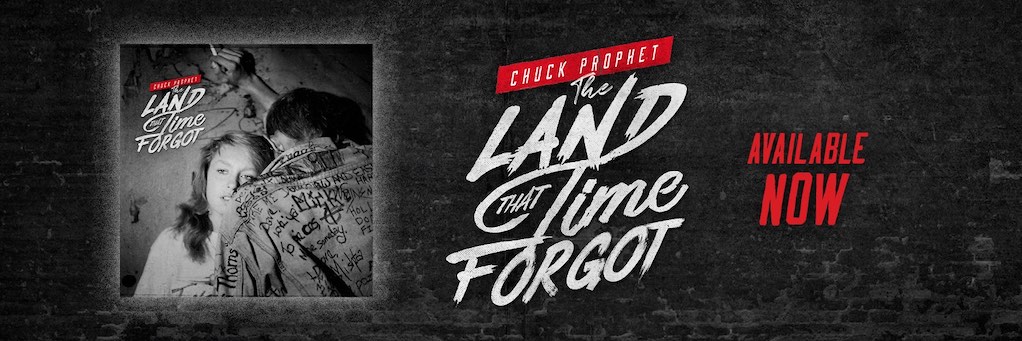

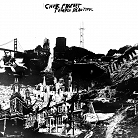
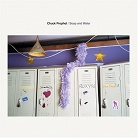
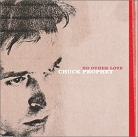
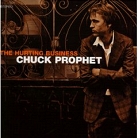
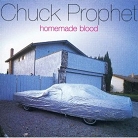
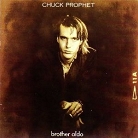
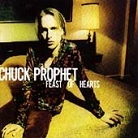



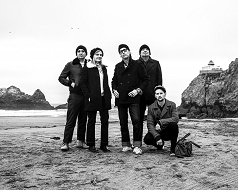
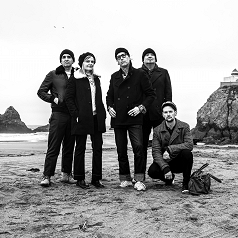
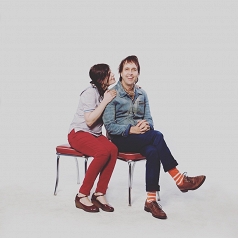
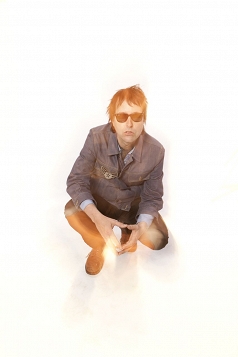

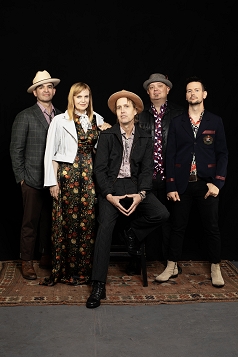
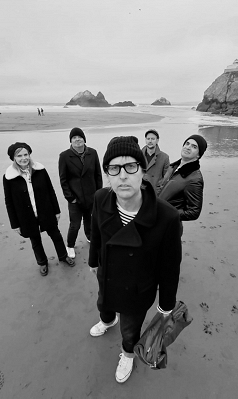
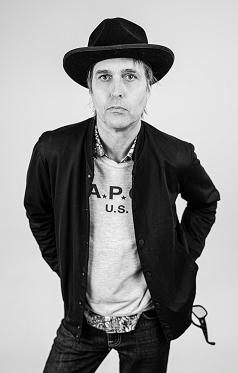
3_238_159auto_s_c1.jpeg)
